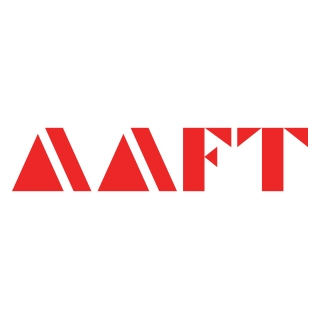High-Salary Courses After 12th Arts
Are you wondering what your career options could be as an Arts/Humanities student? Are you looking for details about the Jobs available and the salary you can expect? You have come to the right place. This blog will take you through the various courses that you can opt for after +2 to land medium to high-salary jobs.
Let us just begin by saying that studying arts does not limit your choices or career options; You can weigh in your likes and dislikes, your strengths and interests, and what you are passionate about, and then choose a path that is just the right fit. If you are a creative person and passionate about crafts, you might want to look into design courses and the careers they offer. If you are someone who is into languages you can get a degree in Foreign Languages, and so on.
Top Career Paths
Choosing the right discipline is the first step towards landing a job you would like. Keeping in mind the prospective salary ranges in each of these specific fields could help you ultimately make the right decision for yourself. Read ahead to find out more about courses that are in demand, their eligibility criteria, colleges you can look at, and potential job prospects in each discipline.
International Relations
International Relations is a discipline with an increasing demand and is perfect for people who are interested in Geo-politics, diplomatic relations between countries, and International Law. It offers a holistic knowledge of global governance, security, conflict resolutions, and a study of different international organizations like the UN and the like. The courses also delve into the complexities of global relations, climate change, current issues, and so on.

Do you want free career counseling?
Ignite Your Ambitions- Seize the Opportunity for a Free Career Counseling Session.
- 30+ Years in Education
- 250+ Faculties
- 30K+ Alumni Network
- 10th in World Ranking
- 1000+ Celebrity
- 120+ Countries Students Enrolled
To study International relations in India, you would require a minimum of 50% in your +2 and meet the required cut-off as per the Common University Entrance Test (CUET) or other entrance tests offered by individual universities.
With a degree in International Relations, you could land jobs with various international organizations like the UN, IMF, World Bank, International NGOs, and Human Rights Organizations. You could also apply for foreign services, work in embassies, and much more. While the salary varies quite a bit due to the nature and place of work, you can expect it to range somewhere between 5-8 LPA approximately.
Foreign Language
For people with a knack for learning new languages, a degree in a foreign language could broaden your horizons and help you make a career based on your strengths. A comprehensive course in languages that are spoken in multiple countries would be a great start if you want to work as a translator or an interpreter with some of the prominent international organizations, NGOs, and News channels. Academic fields and linguistic research are also some of the fields Foreign Language graduates work in.
Book Now →

Major institutes that offer a degree in foreign languages have a 3-year bachelor’s degree curriculum designed to make the students proficient in reading, writing, and comprehension. You could take the Common University Entrance Test (CUET) to get into these colleges and study the language of your choice.
You could work in academia, media, HR, and other fields after graduating, and although each one of these would come with a different salary structure, you could expect somewhere between 3-6 LPA.
Bachelor of Design (B.Des)
First things first, you don’t need to be an amazing artist to become a designer. Based on your interest you can choose from the disciplines offered by Design schools. This could include fashion/apparel design, fashion communication, product design, graphic design, and much more. The courses would introduce you to the fundamentals of design and enable you to navigate the design world through specialized, niche subjects like Garment Construction or Logo Design, Typography, or Illustration. You would by the end of the 4 Year degree course, understand the dynamism of the field and learn the social and ethical aspects along with the technical needs.
Do you want free career counseling?
Ignite Your Ambitions- Seize the Opportunity for a Free Career Counseling Session.Read Also: Fashion Design Courses After 12th: Course Details, Fee, and Eligibility 2024

Most colleges offering a B.Des Degree would require you to clear a DAT (Design Aptitude Test) and/or a Personal Interview.
Read Also: 5 Reasons Why Our Fashion Design Course Will Set You Apart
NID and NIFT, two renowned Design Schools in India conduct a two-phased entrance/aptitude test each. AAFT offers a B.Des in Fashion Design alongside a B.Sc in Fashion Design and Fashion Communication.
With both academic and Industrial knowledge, at the end of the course, you could work as a fashion/apparel/graphic/product designer, stylist, fashion writer, or consultant in some of the top brands and design houses. As a fresher, you can expect a salary ranging from 3-6 LPA. A Fashion Stylist might expect their initial package to be around 3-4 LPA, while Designers working in Luxury fashion/accessories can earn around 4-5 LPA. If you want to become a Graphic Designer or Fashion Writer you can expect to earn anywhere between 2-4 LPA and 3.5-5 LPA respectively.
Hotel Management
If you want to work in the hospitality industry, hotel and hospitality management is the way to go. The hospitality industry is evolving both in terms of size and diversity. The courses are designed for knowledge and skill development in terms of front office management, food and beverage services, food and catering law, HR, etc. With field training and internships, they train students to navigate the dynamic industry requirements.

After securing an aggregate of 45%-50% in +2, you can opt for CUET UG or NCHMCT-JEE conducted by NTA. You can also opt for other individual tests/interviews conducted by different colleges. You can choose between a B.Sc in Hospital and Hotel Administration (3 years) or a Bachelor of Hotel Management(4 Years). The curriculums provide hands-on training and a clear understanding of the Hospitality Industry with both theory and practical subjects in their syllabus.
Read Also: Hotel Management Courses After 12th
Different areas where Hotel Management graduates are employed have different salary structures. For instance, as an entry-level managerial job, you can expect a salary of 3-4.5 LPA; as a food and beverage manager, you might expect 3-5 LPA, and in Front Desk Operations, the salary might range between 3.5-5.5 LPA. However, since Hotels vary greatly in terms of services, star rating, etc, these numbers can vary accordingly.
Media Sciences and Advertising
Media Sciences and Advertising is an all-encompassing course that trains students in different aspects of media and production including journalism, Public Relations, brand management, photography, and emerging niches like social media management, digital marketing, and so on. With this, you could work in PR firms, news channels, social media managers, content strategists, and a plethora of other jobs.
Read Also: Tips for Creating A Winning Brand Communication Strategy
Common University Entrance Test or CUET – mass media and communication or other eligibility tests/Personal Interviews independently conducted by individual institutes.

Since the course delves into a variety of specialized niches, the salary structure can vary. While the initial range for PR can be between 3 and 3.5 LPA, it can go up to 4.5 LPA for Social Media and Brand management. Content Strategists, depending on the type and complexity of content can get paid around 3-6.5 LPA. As advertising and Media become more complex and diversified with emerging technology and its dynamic approach, the salary structures are expected to vary in the upcoming years.
Journalism and Mass Communication
Journalism courses usually revolve around research, interviewing, writing news reports and articles – for print and digital media, editing, and so on. With the emergence of independent news channels and a shift away from mainstream news media, there could be increasing opportunities for young aspiring journalism and mass communication graduates.
Read Also: 5 Essential Skills Every Aspiring Journalist Needs Today

GMCET or Global Media Common Entrance Test allows you to study journalism anywhere in India. You could also opt for CUET – mass media and communications to get into the institute of your choice, or take independently conducted aptitude tests and interviews conducted by different institutes.
Read Also: Is Citizen Journalism the Future of News?
The initial salary (approximately) for journalists can vary between 3-5 LPA depending upon the nature of the job, the news channel they might be working for, the medium, and so on. The salary range for on-field journalists might fall between 4-6 LPA, while sports journalists and Entertainment Journalists might make up to 3- 6 LPA, and Photojournalists can make around 4-5 LPA.
LLB or Bachelor of Legislative Law
If you have a keen eye for fine print, and maybe are thinking about pursuing a career in Law, you might want to look into the various eligibility tests conducted in India. All India Law Entrance Test (AILET), Common Law Admission Test (CLAT), Law School Admission Test- India (LSAT), and Common University Entrance Test (CUET) – Law are some of the most common tests that would allow you to study LLB anywhere in India. You will, however, require a minimum of 45%-50% (in +2) aggregate or equivalent from a recognized board to appear in these exams.

You could either go for a 3-year LLB or an integrated 5-year programme. The courses usually offer in-depth knowledge about the legal system and framework in India. The students are taught, in detail, about different areas of law including Criminal Law, Family Law, Corporate and Tax laws, Environmental regulations, and much more. It will also help you get acquainted with Constitutional Law – Its theories, implications, and practice.
You could specialize in one of the many fields once you graduate. In India, as a Lawyer who’s just starting out, you could earn around 3-5 LPA depending upon where you are practicing and what niche (Criminal Law, Corporate Law, etc) you are choosing. While Corporate Lawyers can expect a salary range between 4-6 LPA, Criminal Lawyers might earn somewhere between 3-6 LPA, and Family Lawyer and Tax Lawyers can expect a range of 3-5 LPA and 5-6 LPA respectively.
BBA
Business Administration has been a popular course among Humanities/Arts students for a while. The course is designed to provide you with the tools to nurture your understanding of Business administration, improve the skills required to handle managerial posts and MNCs and firms, and increase your employability. You could also go for specialized courses like a BBA in Hospital Management/Administration, BBA in Event Management, IT management, Digital Marketing, and so on.

While CUET is a good way to go about studying BBA (3 years), you could also look into IPMAT (Integrated Programme in Management Aptitude Test) for a 5-year Integrated Programme in Management offered by the IIMs. Specialized courses like Event Management – that give you a perspective on how to creatively plan and organize large-scale events – are offered by a number of Private colleges and B-Schools in India.
Since the areas you can work in after BBA are rather diverse, the salary could also vary more than other disciplines. For instance, you can expect a salary of 4-5 LPA after Hospital Management, around 3-6 LPA for Event Management, and 3-5.5 LPA for BBA in Digital Marketing. On average, a BBA graduate could potentially earn between 3-7 LPA depending upon the specialization, skills, and other aspects.
To Sum It Up
AAFT offers an array of well-designed 3-year and 4-year degree courses for Arts/Humanities students. From film-making and acting to music, marketing, design, Event Management, Hotel Management, and much more. Our programs are structured to Introduce the students to the fundamentals of each discipline and the nuances of the Industry. The hands-on trainings and student-oriented approaches of the curriculum help them get acquainted with the field of their choice and land jobs in some of the leading Companies.

Now that you have a breakdown of eligibility criteria, skills, and expected salary/jobs, you can take some time to figure out where your interest lies. You could also take certified Aptitude Tests and Career Assessment Tests to find out what could be best for you. Studying Arts/Humanities can open up a multitude of new pathways – creative, diplomatic, administrative, and academic – that you might not have thought of before. Explore the options and trust your passion and you will be good to go!

AAFT has been providing the world with limitless creativity and expression since 1993! Through a dynamic and industry-driven curriculum, AAFT provides engaging and captivating articles to persuasive blogs and empowers its readers to explore diverse avenues of creative media education-related content.






